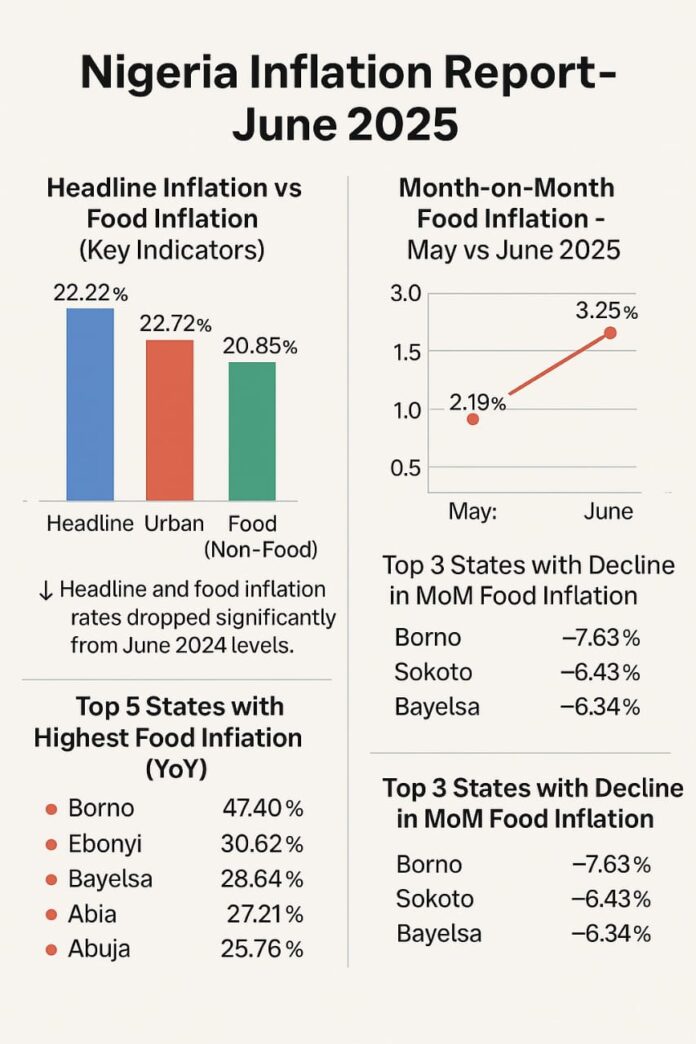by NIyi JACOBS
Nigeria’s headline inflation rate dropped to 22.22% in June 2025, down from 23.00% in May and significantly lower than the 34.19% recorded in June 2024, according to the latest data from the National Bureau of Statistics (NBS). However, food inflation surged, with prices rising 3.25% month-on-month—an increase from 2.19% in May—driven by spikes in the cost of essential staples.
Despite the overall easing, the monthly inflation rate edged up slightly to 1.68%, from 1.53% the previous month, reflecting a faster rise in the general price level. The Consumer Price Index (CPI) also climbed from 121.4 in May to 123.4 in June.
Food inflation, which has a direct impact on most Nigerians, showed a 21.97% year-on-year rate—still significantly lower than 40.87% recorded in June 2024 due to a change in the base year—but the sharp rise within June underscores mounting pressures on household food budgets.
Urban areas were hit harder, recording a 2.11% rise in monthly inflation, up from 1.40% in May, while rural areas saw a steep drop to 0.63%, down from 1.83%.
At the state level, Borno (47.40%), Ebonyi (30.62%), and Bayelsa (28.64%) recorded the highest year-on-year food inflation rates. In contrast, Katsina (6.21%), Adamawa (10.90%), and Sokoto (15.25%) saw the lowest. Monthly food inflation spiked in Enugu (11.90%) and Kwara (9.97%), while Borno (-7.63%) and Sokoto (-6.43%) recorded declines.
Although headline inflation is cooling, the rising cost of food remains a major source of concern, especially for low-income households.














